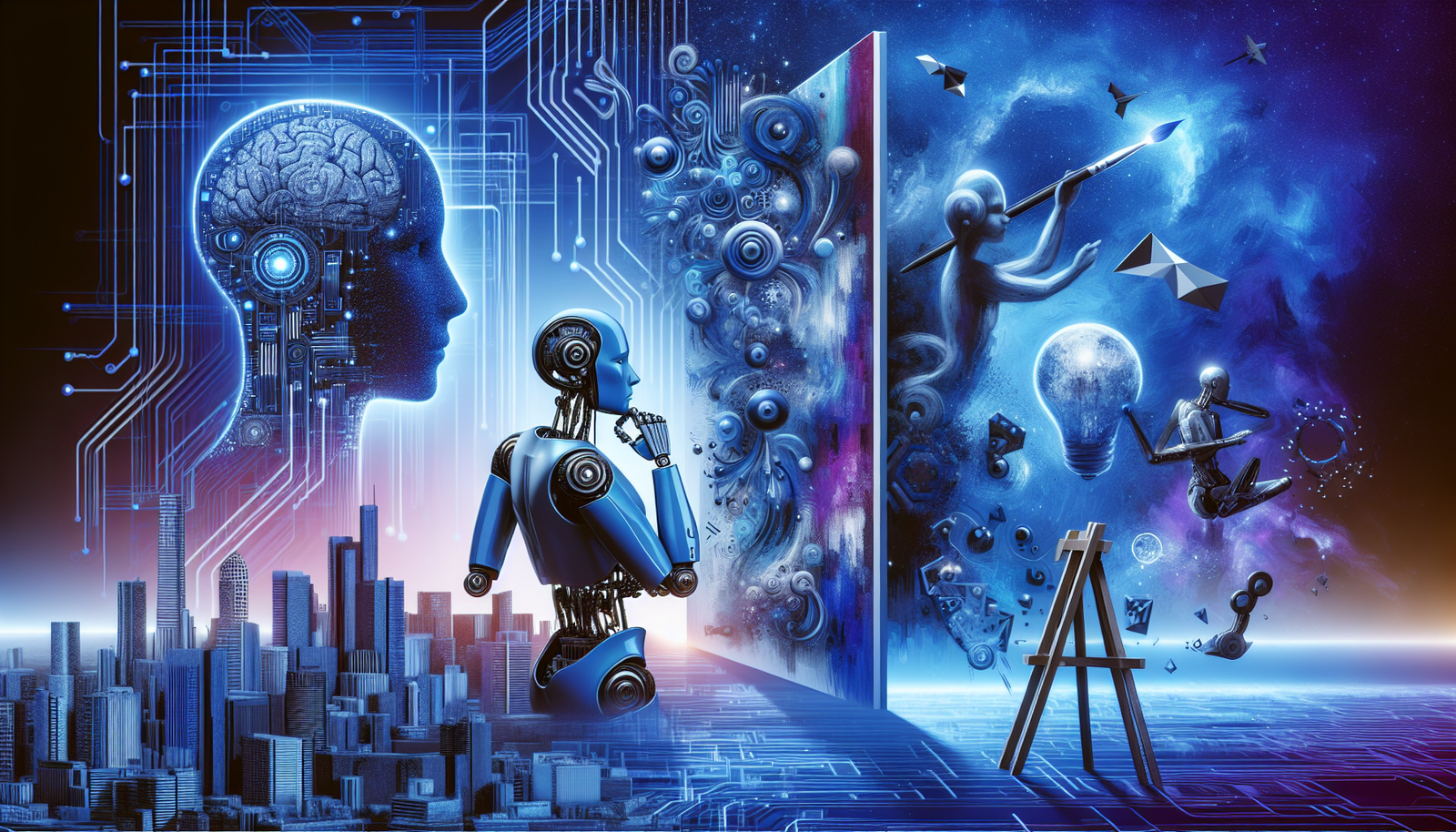Artificial intelligence shakes the very foundations of artistic creation. This technological phenomenon raises essential questions about the value of works and the status of creators. The anxiety about a potential human substitution both repulses and fascinates, complicating the debate about its real impact. The boundary between the tool and the illusion blurs, leaving artists facing unprecedented challenges. Does AI threaten the authenticity of a work, or does it become a necessary complement to propel creation toward new horizons? The future of visual and sound arts is outlined in outline, defying our perception of creative genius.
Artificial Intelligence: Impact on Artistic Creativity
Artificial intelligence (AI) is appealing to the world of artistic creation at a lightning fast pace. AI algorithms, capable of generating visual, musical, or literary works, challenge traditional production methods. Artists find themselves in a dilemma: does AI represent a technological advancement or does it constitute a threat to their originality and livelihood?
The Promises of Artificial Intelligence
Innovative companies are leveraging AI capabilities to transform their creative practices. This technology allows for the automation of certain steps in the creative process, freeing up time for artists to focus on deeper aspects of their work. AI software can assist in seeking inspiration, refining compositions, or even generating initial sketches.
For some, AI acts as a valuable assistant, facilitating the exploration of new horizons. Artists can thus integrate unprecedented techniques, enriching their creative vocabulary and challenging established conventions. “Generative AI” allows for the expression of concepts that previously seemed inaccessible.
Emerging Concerns
Despite the opportunities, concern is rising among creators. The fear of an imminent replacement by machines fuels the debate around copyright and intellectual property. Works generated by AI raise questions about authenticity, often seen as the bedrock of artistic creation.
The list of concerns includes the risk of homogenization of cultural productions. Artists fear that AI, based on pre-existing models, will ultimately standardize artistic expressions. This trend foreshadows a world where creative diversity is diminished in favor of standardization.
Collective Actions in Response
Creators, concerned about defending their rights, are coming together in response to the rise of AI. Legal actions are being taken to protect artworks from unauthorized use by deep learning algorithms. Several artists’ associations are organizing to highlight the issues related to their activity.
This collective movement aims to raise public and political awareness of the importance of preserving the richness of human creativity. Members of these organizations hope to establish a regulatory framework to ensure fair remuneration for the use of their work, even when integrated into AI systems.
Toward a Digital Ethics
Developing ethical use of AI in the artistic field is a major challenge. It is imperative to recognize the role of each creator while integrating technological innovations. The need to frame the use of these tools is essential to avoid devaluing human work.
Organizations and experts are exploring best practices, seeking solutions to enable a harmonious coexistence between man and machine. Fair representation is essential to ensure that AI remains a tool serving creativity, rather than a substitute for it. At the heart of this approach lies the protection of artistic integrity, an unavoidable issue.
Conclusion of Artistic Evolution
The path ahead remains fraught with challenges, but proposals for integrating AI into creation continue to evolve. Whether in practical applications or co-creation, the future promises rich possibilities. Current discussions will help chart a course in which creators can benefit from these technological advances while preserving their artistic essence.
FAQ on Artificial Intelligence and Artistic Creation
What are the main concerns of artists regarding artificial intelligence?
Artists primarily fear that artificial intelligence will replace their creative work, thereby devaluing human works and impacting the income generated by their art.
Can artificial intelligence really produce artworks of quality comparable to those created by humans?
Yes, artificial intelligence is capable of generating visual, musical, or literary works; however, the perception of quality and artistic value remains subjective and dependent on human interpretation.
What impacts can AI have on traditional creative processes of artists?
AI can disrupt the creative process by facilitating certain steps, but some artists believe it can also undermine the authenticity of artistic expression and the importance of the human touch.
How can creators protect their copyright in the face of the growing use of artificial intelligence?
Creators should inform themselves about copyright laws and explore legal options to protect their works from unauthorized use by AI models.
What solutions exist to balance the use of AI in art without replacing human creators?
Collaborative practices between artists and AI can be implemented, allowing artists to use AI as a supportive tool while preserving the human creative element in the process.
How could artificial intelligence stimulate creativity rather than threaten it?
AI can offer new perspectives and techniques to artists, opening unexplored horizons and enriching the creative process with innovative ideas and styles.
What ethical issues are raised by the use of AI in art?
Ethical issues include intellectual property, authenticity of works, and the question of whether AI-generated creations maintain artistic value similar to that of human works.
How does the public perceive the use of artificial intelligence in artistic creation?
Opinions vary; some see AI as an enriching innovation, while others fear that it will destroy the value of art, highlighting the need for open discussion on these topics.






